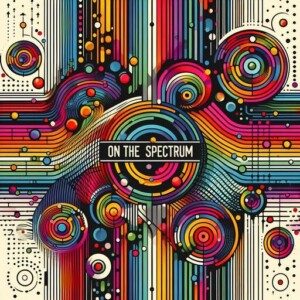Here are 15 signs you could be autistic even if you’re 100% self-sufficient and don’t need help living independently.
You can still be autistic even if you aren’t disabled by this condition.
I’m a fiercely independent person who finds the idea — of depending on other people for support with living my life — to be sickening to my stomach.
I also have a clinical diagnosis of Autism Spectrum Disorder. It definitely comes out; make no mistake!
For example, at anyplace I’ve ever lived, I’ve never wanted to meet, let alone regularly fraternize with, my neighbors.
I’ve always waited (when possible) till dark to take out the garbage or get my mail.
I’ve timed my community excursions, such as to the gym, to coincide with just when it’s getting dark as I arrive home. I’ve never wanted to be seen. It’d make me feel too exposed.
Ironically, when I’m out and about in public, I sport my Alpha persona (not a mask; I’m an authentic Alpha woman) and will look smack in the eye anyone who seems fixin’ to give me a hard time.
I’m very Alpha when it comes to dealing with potentially troublesome people such as incompetent retail employees or some clown I just happen to encounter in the course of being in the community.
But at home? I want NOT to be seen. Oddly, at my parents’ house, I didn’t have this issue when I was outside in broad daylight. It’s always been about my residence.
• Never had a serious romantic relationship.
• Never had any interest in sexual relations; zero libido, always (and NO, I was never sexually abused, nor were my siblings or parents). In fact, my parents had a great marriage where both could totally “be themselves” around each other.
I’m obsessed with ASD and want to share some milder or more subtle signs that are highly suggestive of this neurotype – even if you sometimes doubt you could actually be autistic due to a very high level of “functioning,” or – to put it another way – no need for any support services or people to help out with tasks that a “normal” person should be able to do.
15 Signs a Very Self-Sufficient Adult Can Actually Have Autism

©Lorra Garrick
1 Eye contact feels like a formality. You often wonder if you “do” eye contact right or if people notice anything odd about your eye contact – even though you give and hold eye contact.
2 Peculiar interests. People have told you that your topics of interest are weird.
Or, you refrain from mentioning them at social events because you know people won’t be interested – yet you’re so itching to talk about them.
3 Can’t express physical empathy. You find it difficult, awkward or unnatural to give physical comfort to a beloved family member in their time of need, even though you’d jump in front of a train to protect them.
4 Can’t grasp pop culture. Can’t get why a mere soccer player has 300 million Instagram followers, among tons of other things that make no sense to you.
You can’t figure out why nearly all the women on TV wear their hair in that same dopey style that was non-existent before 2015.
• Why aren’t people called the first name that’s on their birth certificate?
• Why is it always shortened? What’s wrong with Joshua? Why must it always be Josh?
• Heaven forbid if you call Kimberly Kimberly instead of Kim, right?
• There are exceptions; I’ve personally known some, but let’s face it: The nicknames are out of hand and are almost always initiated by the very people who gave that person their name: their parents.
• If you introduce yourself as Jacqueline, I’m calling you Jacqueline – unless you tell me to call you (cringe) Jackie.
• Yeah, autistic people get caught up in things like this.
5 Alone, not lonely. You desperately wanted a single room at your college dorm and never once got lonely.
When you told students you had a single and they responded, “Don’t you get lonely? I could never have a single; I need a roommate,” you thought they were totally off their rocker.
6 Tactics, not emotions. In crisis situations you go into full-on Vulcan or business mode to manage the issue, rather than becoming emotional and shrieking.
7 You’re just … strange. I was once on a crowded bus in Chicago while my car was in the shop.
The bus suddenly started braking – hard. While other women were gasping and afraid, I wanted it to hit the vehicle ahead (it was going slow; the impact wouldn’t have been much).
I don’t know, was that autism or was my life that unexciting?
8 You suppress “it” around others. The “it” is stimming, something I learned about while on my ASD diagnostic journey.
You’re so good at suppressing your stimming that you can’t understand why someone with only mild autism would openly stim in a mainstream setting.
You don’t feel you’ll ever be ready to let loose with your stimming, even at autism events where there’d be no judgement.
9 Why did she just smile at me? You can’t understand why complete strangers smile at you in the absence of an interaction with them when you’re just waiting in line or conducting some other unexciting task — and you find it hard to smile back – and even wonder if you’re supposed to.
10 The brain can’t do it all. You’ve convinced yourself your social awkwardness is due to your brain not having enough bandwidth because so much of it is dedicated to your amazing talents – such as art and music, writing and cartooning, working as a chemist or software engineer, or some other area of brilliance.
You’ve told yourself countless times, “Nobody can be good at everything.
“Nobody can have good social skills AND be a shark scientist AND be gifted at the piano AND excel at analyzing situations all in the same brain.”
11 Star struck. You’ve always dreamed of acting in film. But you never pursued it because – well, you just didn’t.
But your lifelong desire to “be in the movies” is why you constantly rehearse anticipated conversations, regardless of context. Sometimes word for word. Over and over and over and over…
You’ve always thought this was because you had a yen for acting in film. Hmmm, is that really the reason?
12 Other people are weird AF. The list is endless: All the things other people do that you think are just so … DUMB, weird or bizarre.
Yet you also recognize that many people commit these oddball behaviors and that they are perceived, by the masses, as completely normal.
• Breaking into dopey “baby talk” when talking to a baby.
• Using a patronizing, overly animated voice when speaking to young children.
• Slowing down on a highway to 30 mph (and not being smart enough to know that this will cause a lengthy bottleneck) because they see a cop on the shoulder speaking to a motorist – like staying at 60 mph is gonna make that cop jump into his car, chase them down and issue them a ticket? Like, WTF.
• Holding doors open for able-bodied strangers. You’d do it for a disabled person or someone struggling with a load of packages, but like hell you’re fine with someone holding a door open for you because this then puts you in the super awkward position of “having to” make an unwanted connection with a stranger. The eye contact, if you submit to the connection, feels like a formality.
• Everyone thinks you’re the oddball, yet you’re convinced everyone else has the problem.
13 Change sucks. You live by the mantra, “If it ain’t broken, don’t fix it.”
You silently seethe or let out some expletives or a good slug to the desk or your thigh when you log onto an online account and see that the site layout is suddenly different.
Change that serves you no purpose, especially if unexpected, riles you – but not to the point where you become non-operative.
Instead you curse, slug your desk and wonder why things can’t stay as they are if they’re not broken.
The grocery store you always shop at changed some things up. Why, why, WHY?
You’ve become aware there’s a quicker way to do something – but plan on staying with the way you’ve always done it.
Or, you realize there’s a faster way while doing that something, but feel more comfortable continuing to do it the less efficient way because that’s what you’re used to.
14 “Taxed” doesn’t always mean IRS. You sometimes find yourself using the terms taxed and drained to describe how you feel after a social event.
You’re not exhausted, though, and you need only an hour or two to recover; but nevertheless, you’re left with this unwelcome feeling of being … taxed or strained.
But if you try to “act like everyone else,” this will feel like going against your natural grain. You can’t win.
15 Meltdowns inside your head. I can’t begin to tell you the number of times I’ve thrown potted plants and chairs into the walls of my home, slamming plates to the floor and shattering them, trashing the place – all inside my mind – in response to things not working the way they’re supposed to.
You’ve never thought anything was wrong with you as long as these outbursts remained inside your overactive imagination.
Signs of Autism in Fully Independent, Productive Adults

Freepik.com/nensuria
Men and women — who not only are very productive and self-reliant, but are also even in carer positions for sick family members – can still possess a slew of autistic thinking processes and behaviors, and meet the criteria for an Autism Spectrum Disorder diagnosis.
- ASD shouldn’t be viewed as “more so” in one Autist than in another.
- For example, Sheldon, Temperance and Mr. Spock are no less autistic than are Tommy Westphall or Rain Man.
- Instead, the differentiation is by amount of support needs of that individual.
A diagnosed Autistic who has no support needs has qualified for their diagnosis as much as an Autistic who requires constant supervision and assistance with the most basic tasks.
If you believe you may be on the Autism Spectrum, do NOT put off getting an assessment just because you’re adept at suppressing your quirkiness around other people or, for reasons not known, you never have meltdowns, shutdowns or other “spicy” displays of your autism.
 Lorra Garrick has been covering medical and fitness topics for many years, having written thousands of articles for print magazines and websites, including as a ghostwriter. She’s also a former ACE-certified personal trainer. In 2022 she received a diagnosis of Level 1 Autism Spectrum Disorder.
Lorra Garrick has been covering medical and fitness topics for many years, having written thousands of articles for print magazines and websites, including as a ghostwriter. She’s also a former ACE-certified personal trainer. In 2022 she received a diagnosis of Level 1 Autism Spectrum Disorder.
.



























